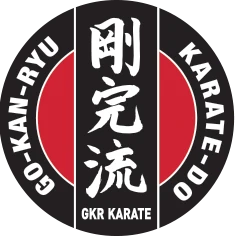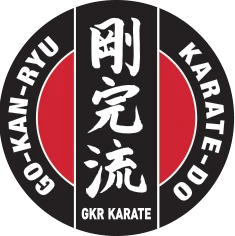
Hypnotherapy to deal with pain
We are all familiar with medication to deal with pain, however hypnosis is the most frequently cited form of non-pharmacologic cognitive pain control. Hypnosis is an altered state of consciousness. It is where one's attention is focused; this creates an environment in which the brain can process information to bring about beneficial changes in a person. This essay explores how hypnosis can be used for pain.
Read more
How you are within directly affects how well you lead.
You might lead a small team, or maybe a few hundred or even thousands of people. If you are a leader in any form within your organisation then you have either, or will need to, transform yourself into a larger possibility. Growing your business means growing yourself and taking others on the journey. And they will look to you as their leader.
Read more
Finding the Best Swimming Coach in Australia
A positive and conducive learning environment is crucial for effective swimming lessons. Evaluate the swimming facility where the coach conducts their lessons. Look for clean and well-maintained facilities, including well-kept swimming pools and changing rooms. A comfortable and safe learning environment can enhance the overall swimming experience.
Read more
Meditation For Managing Chronic Pain
Sitting in quiet meditation and allowing the noise of the mind to pass by brings awareness of your own inner strength. In meditation you’re no longer in the midst of all the noise, rather you’re sitting at the boundary observing it. This brings perspective, an understanding of the transience of everything in life, even of negative emotions.
Read more
Everyone is a Healer
The other day I was doing our local headland walk and as I passed the playground, a three year old took a fall off his bike and grazed his knee. His dad came over to comfort him and put his hand on his knee. It was lovely to see how quickly the child turned from tears to smiles. You might also remember the comforting touch of your mum or dad when you took a fall as a kid. A parent’s touch actually helps injuries improve faster because of the healing energy that is naturally sent from the hands.
Read more
Confidence and Safety: The Benefits of Self-Defence Classes
Engaging in physical activity releases endorphins, those magical chemicals that make you feel happier and more relaxed. So, as you're perfecting your jabs and uppercuts, you're also giving your stress levels a healthy beatdown. Plus, knowing you have the tools to handle tricky situations can ease the anxiety that often accompanies the unknown.
Read more
The Role of Massage in Sports Performance and Recovery
Massage isn’t just about relaxation (though that’s a fantastic perk!). For athletes, it’s all about maintaining peak performance and ensuring their bodies can handle the demands of their sport. Think of it as a secret weapon in their training arsenal. There are several types of massage that athletes typically turn to, including Remedial Massage, Sports Massage, and Deep Tissue Massage, each offering unique benefits.
Read more
Is your yoga teacher right for you?
Deciphering whether your yoga teacher is helping you or holding you back can be a tricky process, so we’ve listed some questions to ask yourself to help you start. Is your yoga teacher helping or hindering you? As with anything, choosing the right yoga teacher for you is pivotal to success and growth, both physically and mentally.
Read more
What Type of Yoga is Best for Beginners?
Starting your yoga journey can be both exciting and daunting. With various styles available, it’s essential to choose one that suits your abilities and preferences. Beginners Yoga is designed to introduce newcomers to the fundamentals, ensuring a gentle and supportive introduction to the practice. Yin Yoga encourages relaxation and deep stretching, perfect for easing into your new routine. Yoga Nidra, often referred to as ‘yogic sleep,’ offers a unique experience of guided meditation that can help you release stress and find tranquility.
Read more
Yoga for Beginners: A Comprehensive Guide to Getting Started
Discover the essentials of Yoga, including styles like Hatha and Yin Yoga, with this beginner's guide.
Read more
Why you need a natural mineral drink in your diet
The human body may not receive all the nutrition it requires to ensure our wellbeing and help us to perform at an optimum level. Although your body will be able to produce a few vitamins, it is unable to manufacture minerals or trace elements. The long-term effects of this impact your general wellbeing and can lead to conditions linked to inadequate nutrition. This article explains the benefits of including a natural mineral drink in your diet.
Read more
5 fun partner poses to do with your kids
Practicing yoga with kid’s increases bonds, builds self-esteem and helps create strong families. All you need is a bit of space and a willingness to give it a go. If you’re looking for somewhere to start, have a look at these five fun partner yoga poses…
Read more
Injury Prevention Strategies for Basketball Players
Basketball Coaches promote an open and honest environment where players feel comfortable reporting injuries or discomfort. Ignoring early warning signs can lead to more severe injuries down the line. Players are encouraged to speak up, and coaches ensure they have access to medical professionals for assessment and treatment.
Read more
Unleashing Mental Strength: The Impact of Karate on Your Mind
Karate, beyond its striking moves and powerful strikes, has the remarkable ability to transform your mind.
Read more
The (Im)possibility of work-life balance
Happiness can be a delicate creature. It has to be fed, nurtured and given attention. If we are too busy to nurture it then it grows weaker. In some cases happiness becomes so weak that it seems dead, but it is merely lying dormant until it is nurtured once more. For it to remain strong we need to create and maintain a balance between things that consume our energy and things that replenish our energy. This is often referred to as work/life balance.
Read more
Eye spy a trauma cure
Accredited experts and organisations, including the World Health Organisation are giving the thumbs up to Eye Movement Desensitisation and Reprocessing (EMDR) as a way of treating trauma. Find out why.
Read more
Are you reading this slumped over your smartphone?
On average, people spend approximately two to four hours (or more!) a day slumped over their phone. Be warned. It’s called ‘Smart Phone Syndrome' and it puts pressure on the spine that can lead to surgery. Find out how you can correct it.
Read more
Depression and deficiency of nutrients in the body
Depression is not only a mood or a lack of interest in life. Depression can be caused by attacks on our immune system by inflammation in the body. The depressive symptoms can be a bi-product of the lack of certain nutrients that the body is failing to absorb.
Read more
How Many Yoga Classes Should I Do a Week?
Finding the right number of yoga classes to attend each week can be tricky. It really depends on your personal fitness goals, lifestyle, and how much you want to immerse yourself in yoga. A few classes a week can provide significant benefits, but if you’re looking to deepen your practice, more frequent sessions may be the way to go. Remember, consistency is key to unlocking the full benefits of yoga!
Read more
What does an Osteopath even do??
We get it. Lots of people don’t really know exactly what we do. First of all, it doesn’t help that our name is a massive misnomer, a relic of the past where bony “alignment” was emphasised far more than what we know to be useful today.
Read more







